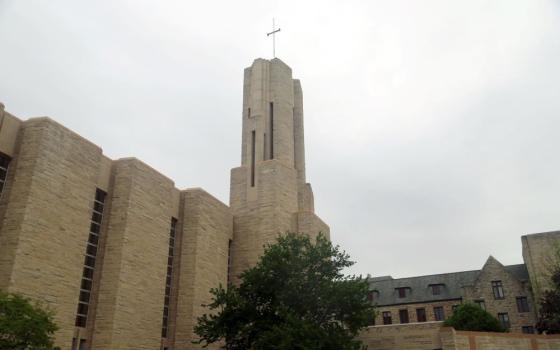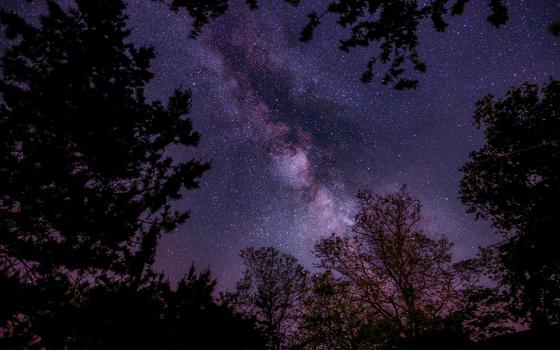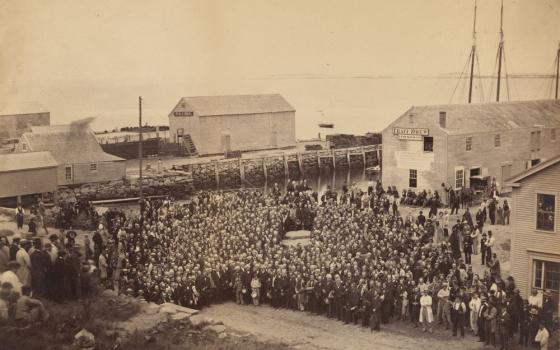By JOHN L. ALLEN JR.
Toledo, Ohio
Since conflict is the stuff of drama, and since journalists are at heart story-tellers, heartache generally trumps harmony as a compelling news story. As applied to Christian-Muslim relations, this suggests that we’ll inevitably hear more about what divides the two communities than what unites them.
The last 24 hours, however, have brought three small reminders that despite all the difficulties of Christian/Muslim relations, hope endures.
First, the St. John the Evangelist Theological Faculty of Sicily announced yesterday the opening of a “Center for Christian Heritage” in Isfahan, Iran, with the backing of the Islamic Republic of Iran as well as the Holy See and the Italian government. The center will be hosted by the Department of Humanities at the University of Isfahan, and will be devoted to study of the Christian patrimony of Iran.
Iran’s Christian population consists mostly of a reported 200,000 Armenian Orthodox, about half of whom live in Tehran and the rest mostly in other urban areas, including a large presence in Isfahan. There’s also a sizeable Assyrian Christian population, along with a small number of converts to Catholicism, Anglicanism and a variety of other Protestant confessions.
Although the Iranian constitution recognizes Christians, Jews, and Zoroastrians as protected minorities, all face discrimination in education, government, and the armed services. Common law applies the death sentence for trying to convert Muslims. Over the past 13 years, at least eight evangelical Christians have been killed by government authorities, and more than 20 are reported “disappeared.” Last year, Ayatollah Ahmad Jannati, secretary general of the powerful Council of Guardians, stated that “non-Muslims cannot be described as human beings, but as sinning animals come to earth to disseminate corruption.”
In that light, the decision by the Iranian government to officially sanction the creation of a center dedicated to the conservation of the country’s Christian heritage marks a small but potentially significant opening.
Second, news circulated yesterday of an unusual gesture of good will in Dakar, Senegal, involving a group of Muslim youth who study under an Islamic sheikh named Ahmadou Kara Mbacké. The Muslims had volunteered to help Christian youth in Dakar clean the Catholic cemeteries of Saint-Lazare di Béthanie and Bel Air as a gesture of friendship for the Catholic feast of All Saints’ Day.
The Archbishop of Dakar, Théodore Adrien Sarr, publicly thanked the Muslims of the country, expressing hope that “this spirit of collaboration will bear fruit in the course of time.”
Roughly 95 percent of Senegal’s population of 10 million is Muslim, with 4 percent Christians and the remaining 1 percent practitioners of traditional religions.
Finally, in foreign press coverage of last night’s American elections, much was made of the fact that for the first time, a Muslim was elected to the House of Representatives. Keith Ellison, a Democrat from the Minneapolis area, won with 56 percent of the vote in what has long been a traditionally Democratic district.
Ellison, who grew up in a Catholic household, converted to Islam at age 19 while studying at Wayne State University. In college, he seemed drawn to Louis Farrakhan and the Nation of Islam, but today identifies himself as a member of the moderate Sunni branch of Islam.
Ellison, who is a pro-choice liberal, played down his religion in the campaign, but Muslims in the United States hailed the result as a breakthrough.
In some press coverage in Islamic nations, Ellison’s win was greeted as a sign that what some Muslims regard as anti-Islamic hostility in the United States has perhaps been overplayed.
Granted, these are all small signs, which don’t necessarily betoken much in themselves. They’re likely to be quickly forgotten the next time a major fracas in Christian/Muslim relations breaks out. Yet collectively they at least suggest that the Muslim/Christian story is more complicated than headlines trumpeting the latest crisis sometimes may suggest.




